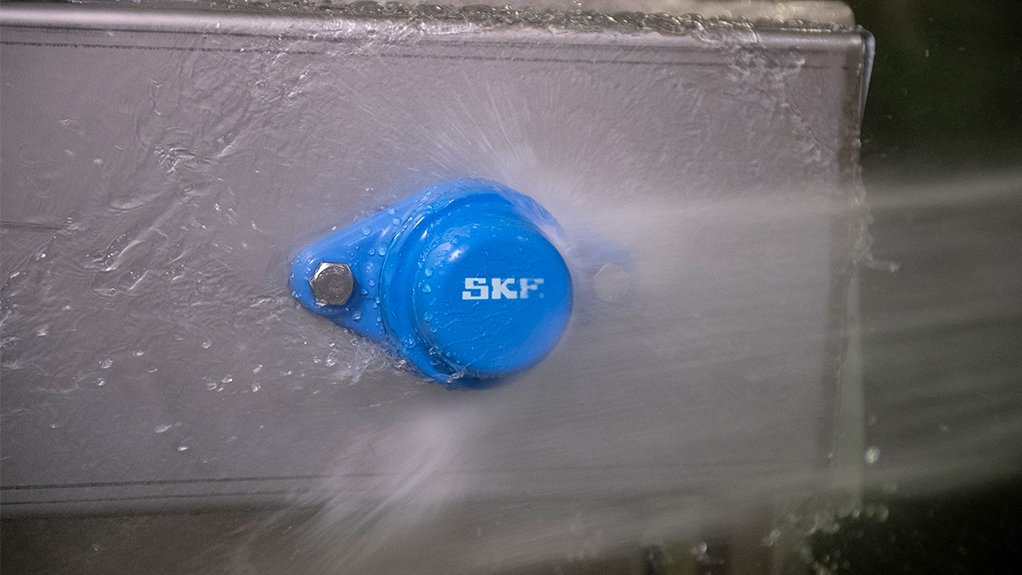The food and beverage industry is required to comply with stringent regulations to ensure the production of safe food. Companies apply numerous safety practices such as the use of hygienically designed food-grade machines and equipment to help protect food products during the manufacturing and processing stages.
Food safety can be compromised by several contamination threats including acidic or abrasive ingredients, high temperatures and frequent wash-downs with corrosive cleansing agents. The resultant corrosion of machine components can cause leakage of lubricants that can potentially contaminate end-products.
In an effort to assist the food and beverage industry in eliminating these threats, SKF highlights its innovative approach to hygiene design, which has resulted in the development of the Food Line ball bearing range which includes the SKF Blue Line series. The units incorporate food grade and corrosion resistant components, with each element designed to balance performance and hygienic standards, aligned with international guidelines.
The hygienic surface geometry of the housing, end cover and back seal is designed to resist residue build-up, facilitate cleaning and help reduce the spread of bacteria and allergens. The design also incorporates blue materials for optical detectability. The Blue Line range can be supplied as open or completely sealed units with an end cover and back seal. The patented bearing sealing system is said to offer exceptional grease performance, contributing to extended bearing life and high reliability. Designed for relubrication-free operations, the units aim to reduce maintenance and related grease and labour costs.
The bearing range is also available with advanced Solid Oil technology, which is a lubricating oil-saturated polymer matrix that fills the internal space in a bearing. The polymer matrix’s micro-pore structure holds the lubricating oil and, as the polymer matrix is pressed into the bearing and then cured, a very narrow gap forms around the rolling elements and raceways, enabling the bearing components to rotate freely. Oil is drawn from the matrix into these gaps, providing continuous lubrication to the bearing. Solid Oil bearings are lubricated for life and are said to contain two to four times more lubricating oil than similar bearings filled with grease. Solid Oil is designed to be resistant to almost all chemicals used in wash-downs.
SKF also highlights its range of high quality, monitoring tools to help optimise rotating equipment performance for extended machine availability, reliability and low operating costs. The company asserts that its cutting-edge, multi-functional, compact SKF TKRT 31 digital tachometer enables inspection of rotating equipment or machines, using laser or contact measurement to determine rotational and linear speed as well as distances, enabling preventative and early detection of problems that could result in machine failure.
The company notes that accurate and timeous lubrication is critical to prolonging bearing life, increasing uptime and production. Over-lubrication is both costly and can cause serious complications, while under-lubrication can allow contaminants into the bearing, resulting in premature bearing failure. SKF’s TLGU 10 Ultrasound Lubrication Checker is said to offer a practical, easy-to-use solution for accurate re-lubrication. With a simple connection to a grease gun and using ultrasonic technology, the device is designed to help improve the manual re-lubrication process, ensuring that the correct amount of lubricant is dispensed into a bearing at the right time, in order to maximise bearing performance and lifetime and deliver low total cost of ownership.
EMAIL THIS ARTICLE SAVE THIS ARTICLE
To subscribe email subscriptions@creamermedia.co.za or click here
To advertise email advertising@creamermedia.co.za or click here













